Now, I'm going to go into the second part and the faster release cycles. A lot of this is focused around the software development lifecycle and more specifically the software testing lifecycle. We know that as the software development lifecycle speeds up with the new CI/CD pipelines and the DevOps world is increasing the pace of releases where historically used to be quarterly or even a yearly Big bang release to customers.
This can be seen on a daily release cycle now. By daily release cycle, it means that users testing manually, or even through regression packs, can no longer keep up with the demands of the organization, and the demands of the organization will ultimately drive this behavior change for success because businesses now realize is the newest features, newest updates will give the edge to win business. How do we deal with this one?
Actually, Eggplant fits directly within the DevOps lifecycle within the CI/CD pipeline in between the continuous integration and continuous delivery as the testing. Continuous testing means it gives the confidence for your customers to release when they launch the newest whether it's a minor release bug change or a big version complete release.
The most important thing is the confidence in the business to know this is up to the standards required for the customers. So how does Eggplant do this? Whether you using any integration tools in-house or otherwise, we can be directly triggered as part of your release cycle to then trigger Eggplant to run our exploratory mode or our direct-to-test cases, to exactly pinpoint and give you the confidence you need that your environment is working.
All of this is directly integrated against your systems, so that way it means that whether using Jenkins, Azure, or any other system, you can get the confidence instantly without manual intervention. And furthermore, since you're getting the results automatically, you can automatically use this to make intelligent decisions for go or no go. Now, this isn't just limited to the standard release cycle. You can break this down into the multiple release pipelines within a testing organization is not just going from development straight into production that be Dev, QA, pre-production, and production in between with many of the flavors with different release methodologies.
The way Eggplant speeds up this faster release cycle is each stage will have a different amount of confidence required. You're not going to need the same math in depth testing in the devil staging stage. Having pre-prod and production, you might want to give that 100% due for everything actually into it because you know it's getting closer to the business and your customers will be interacting with it soon. Furthermore, the closer the interaction with the customer, the more expensive it becomes a cost to the business to fix. Now, how does Eggplant solve this? Because Eggplant uses the modeling approach, you can use the exact same model testing and the suites to build your testing solution.
That means Eggplant can now sit in your production, in your pre-prod, in your QA, in your dev, and make a guarantee those environments are stable and running with the requirements that you have. All of this ultimately loops back together with solving two main problems.
Solving the increased complexity and faster release cycles feeds into a holistic overview of the DevOps release cycle that we now allow to scale at, and now cloud on-premise easily. As you can see in front of you, this continuous loop of generating the models using CodeAI, monitoring efficiency from the existing test models, feeding back into the DevOps lifecycle, and then using that to inform the behaviors will effectively give you a holistic view of your application end-to-end, and to speed up your release cycles and deal with the increasingly complex environments that you may have.
Well, I think that concludes everything I wanted to cover with you all today. I'm very glad that you've been on this journey with me and looking forward to hearing from you.

Comments are closed.